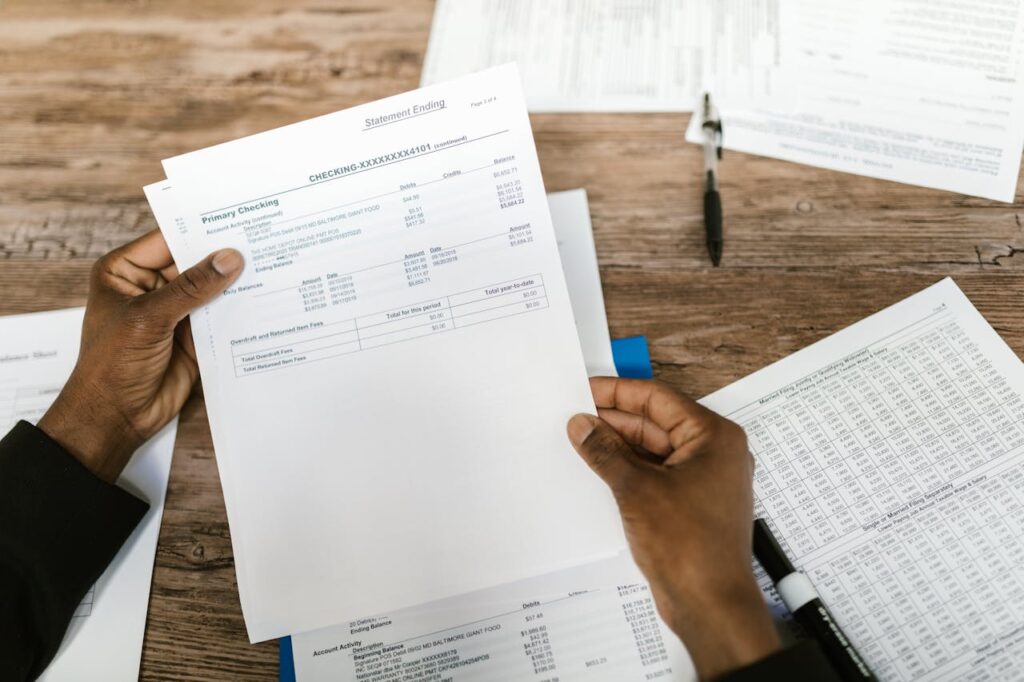Finding a mortgage without a traditional job or steady income might seem like a challenge, but it’s more possible than you think. As of January 2023, 10.1% of the U.S. workforce, which is roughly 16.2 million people, identified as self-employed, while the unemployment rate stood at 4.2% as of November 2024. These numbers showcase the growing population of Americans that have non-traditional income streams.
Whether you’re temporarily unemployed, self-employed, or have a fluctuating income, there are options designed specifically for your situation, including loans for unemployed borrowers. These loans offer flexibility and alternative qualification methods, making homeownership accessible to those outside the 9-to-5 structure.
In this article, we’ll break down how loans for unemployed borrowers work, who qualifies, and how you can still achieve your dream of homeownership. Let’s jump in and explore your options.
Understanding Mortgage Qualification Without a Job
To qualify for a traditional mortgage, you typically need steady income and employment, but for those who’ve forged their own path and don’t fit the standard mold, there are other ways to qualify for a home loan.
Options like loans for unemployed borrowers give you the chance to prove your financial stability in other ways, like liquid assets, cash flow from investment properties, or alternative income verification methods like bank statements with no tax returns required. The demand for alternative income verification has fueled the growing popularity of non-QM (non-qualified mortgage) loans, which cater to those with unique financial situations. These flexible solutions are perfect for self-employed individuals, retirees, or anyone navigating temporary unemployment, making homeownership possible without the need for a traditional job.
Who Would Benefit From Home Loans for Unemployed?
Home loans for unemployed borrowers are designed to help those with unconventional or irregular income streams achieve homeownership. Here’s who might find these loans especially helpful:
- Retirees with substantial liquid assets who want to purchase a home without traditional income.
- Real estate investors relying on rental income or those whose tax returns don’t reflect accurate income due to business write-offs.
- Recently unemployed individuals who have strong financial profiles or assets to show stability.
- Contractors, gig workers, or freelancers juggling multiple part-time or project-based income streams.
- Business owners who don’t have a standard employment setup but generate income through their ventures.
- Stay-at-home spouses leveraging their partner’s income as a co-signer for qualification.
- Those who are in-between jobs, like recent graduates with strong credit scores and career potential.
- Seasonal workers with predictable income cycles who need a loan tailored to their unique situation.
- Veterans who can benefit from flexible VA loan programs to secure a home.

Alternative Income Sources Lenders Consider
When you don’t have a traditional job, some lenders can evaluate other income sources to determine your eligibility for a mortgage. Here are some common alternatives:
- Passive Income: Earnings from rental properties or other investments can demonstrate financial stability.
- Retirement Income: Pensions, IRA distributions, or Social Security benefits may count if you meet the age requirements for access.
- Gig or Freelance Work: Bank statements (personal or business) showing consistent deposits can help validate your income.
- Business Income: Self-employed borrowers can use profit and loss statements to showcase the health of their business.
- Spousal or Co-Borrower Income: If applicable, you may leverage another person’s income to qualify, but be sure to check with your lender, as not all offer this option.
Types of Home Loans for Unemployed Borrowers
If you’re temporarily facing unemployment or just have an unconventional income situation, there are a few types of home loans that might work for you. Here’s a breakdown of the options:
Non-QM Loans
Non-qualified mortgage (non-QM) loans are perfect for borrowers with unique financial situations, such as freelancers, self-employed individuals, or retirees. These loans don’t require traditional income verification, offering more flexibility in how you qualify. Non-QM loans are an umbrella term for several types of loans that don’t have to follow the strict lending criteria set by the Consumer Financial Protection Bureau (CFPB).
VA Loans
For veterans, active-duty service members, and their families, VA loans provide an incredible opportunity to qualify for a mortgage with no down payment and competitive rates. These loans are backed by the Department of Veterans Affairs and are designed to support those who’ve served our country.
Asset Depletion Loans
If you have substantial liquid assets but no regular paycheck, asset depletion loans can help you get into your dream home. Lenders calculate how much you can afford by dividing your total assets over a specific number of months to arrive at a monthly “income.”
Bank Statement Loans
Freelancers, gig workers, or anyone whose income isn’t accurately reflected on their tax return can benefit from bank statement loans. These loans use personal or business bank statements to verify your cash flow and income instead of relying on traditional income documents, like tax returns, W2s, and pay stubs.

DSCR Loans
Debt-Service Coverage Ratio (DSCR) loans are ideal for real estate investors who plan to purchase an income-generating property. These loans use the property’s rental income to determine whether you qualify instead of your personal income, making it much easier to scale your real estate portfolio.
P&L Loans
Profit-and-loss (P&L) statement loans work for self-employed borrowers who can provide a CPA-prepared P&L statement as proof of income. This option is tailored to small business owners that have been in business for a minimum of two years.
Interest-Only Options
Interest-only loans let you make smaller payments during the initial loan term by paying only the interest. This loan option can be useful for those with fluctuating income who expect higher earnings in the future, such as a resident physician.
Home Equity Loans
If you already own a home, a home equity loan lets you borrow against the equity you’ve built up. This type of loan uses your home as collateral, making it a great option for funding large purchases or investments.
Tips to Strengthen Your Mortgage Application Without a Job
Applying for a mortgage without a traditional job may feel impossible, but with the right strategies, you can improve your chances of approval. Here are some tips to help you build a strong application:
Improve Your Credit Score
Your credit score plays a huge role in mortgage approval, so focus on paying down outstanding debt and resolving any errors on your credit report. A higher credit score not only improves your application but can also help you negotiate better loan terms.
Reduce Your Debt-to-Income Ratio
Lenders take a look at your debt-to-income (DTI) ratio to check your ability to handle loan payments. Lowering your DTI by paying off credit card balances, consolidating debts, or boosting your income can significantly improve your chances of qualifying for a loan.
Consider a Co-Signer or Co-Borrower
Adding a co-signer or co-borrower with steady income to your loan application can significantly improve your credibility with lenders. Whether it’s a spouse, partner, or family member, their financial stability can complement your non-traditional income stream and boost your application.

Work With Specialized Lenders
Not all lenders can handle non-traditional mortgage applications. Look for a specialized lender, like Defy Mortgage, who understands that unique financial situations need tailored solutions. Book a call with us today or call (615) 622-1032 to explore your options with one of our mortgage experts!
Speak with a Financial Advisor
We can’t provide financial advice, but a Financial Advisor can. Have a conversation with your advisor on your options – this could be a Wealth Manager, Investment Consultant, etc. Knowledge is power.
Home Loans for Unemployed FAQs:
- Can I get a home loan if I don’t have a job?
Yes! It’s possible to get a home loan without a job if you can prove that you’re financially stable through alternative income sources, assets, or a co-signer.
- What types of income can be used to qualify for a mortgage while unemployed?
Some lenders consider income from rental properties, investment returns, retirement accounts, spousal income, or gig and freelance work.
- What is an asset depletion loan, and how does it work for unemployed borrowers?
An asset depletion loan allows you to qualify based on your liquid assets, which are divided over a set number of months to calculate a monthly income.
- How do bank statement loans help unemployed individuals qualify for a mortgage?
Bank statement loans use deposits in personal or business bank accounts to calculate an average monthly income, making them a great option for freelancers or gig workers.
- What is a DSCR loan, and is it an option for unemployed borrowers?
A Debt-Service Coverage Ratio (DSCR) loan was designed for real estate investors and uses rental income from the property, rather than personal income, to qualify.
- Can I qualify for a mortgage using rental income or investment returns?
Yes! Rental income and investment returns are often considered valid income sources for mortgage qualification, especially with non-QM loans.
- What credit score do I need to qualify for a mortgage without a job?
While requirements vary between lenders and loan types, a credit score of 620 or higher is usually preferred, though higher scores can help secure better terms.
- Are there specific lenders who specialize in loans for unemployed borrowers?
Yes! Specialized lenders like private or non-QM lenders focus on individuals with non-traditional finances, like those without steady employment.
- Can I refinance an existing mortgage while unemployed?
Refinancing while unemployed is possible if you can prove financial stability through alternative income sources or significant assets.
- What are the risks of getting a mortgage while unemployed?
Risks include higher interest rates, stricter terms, and potential financial trouble if you’re unable to repay the loan.
- Can you get approved for a mortgage while unemployed?
Yes! With the right strategy, such as leveraging assets, alternative income verification, or a co-signer, you can still get approved for a mortgage.




